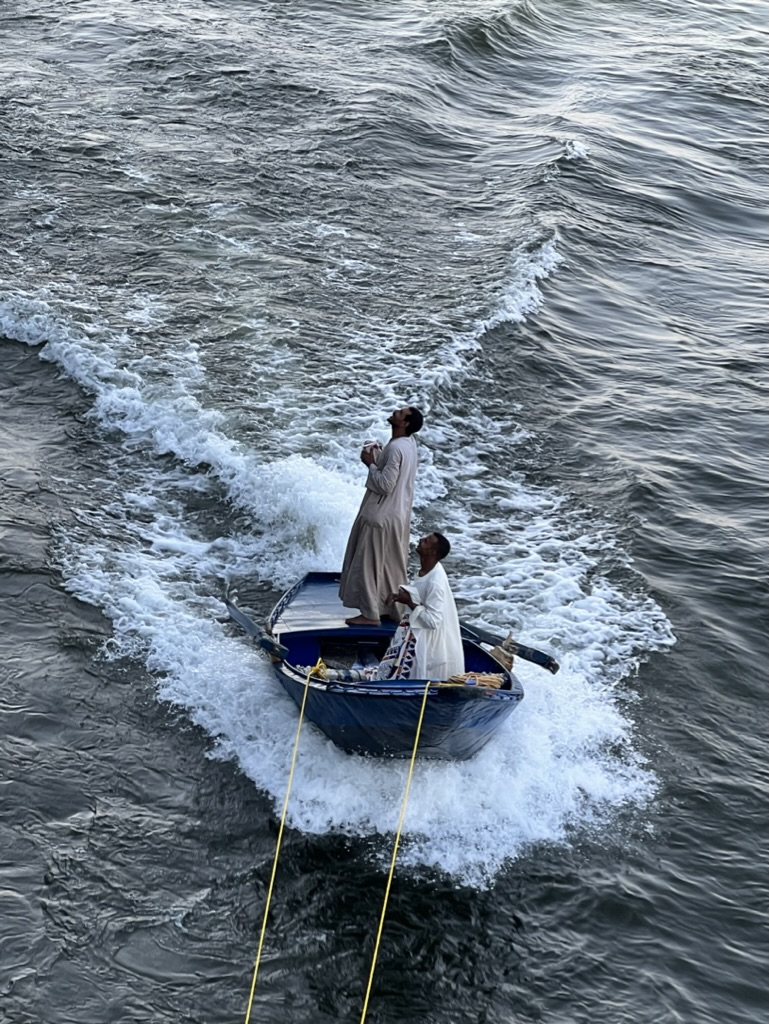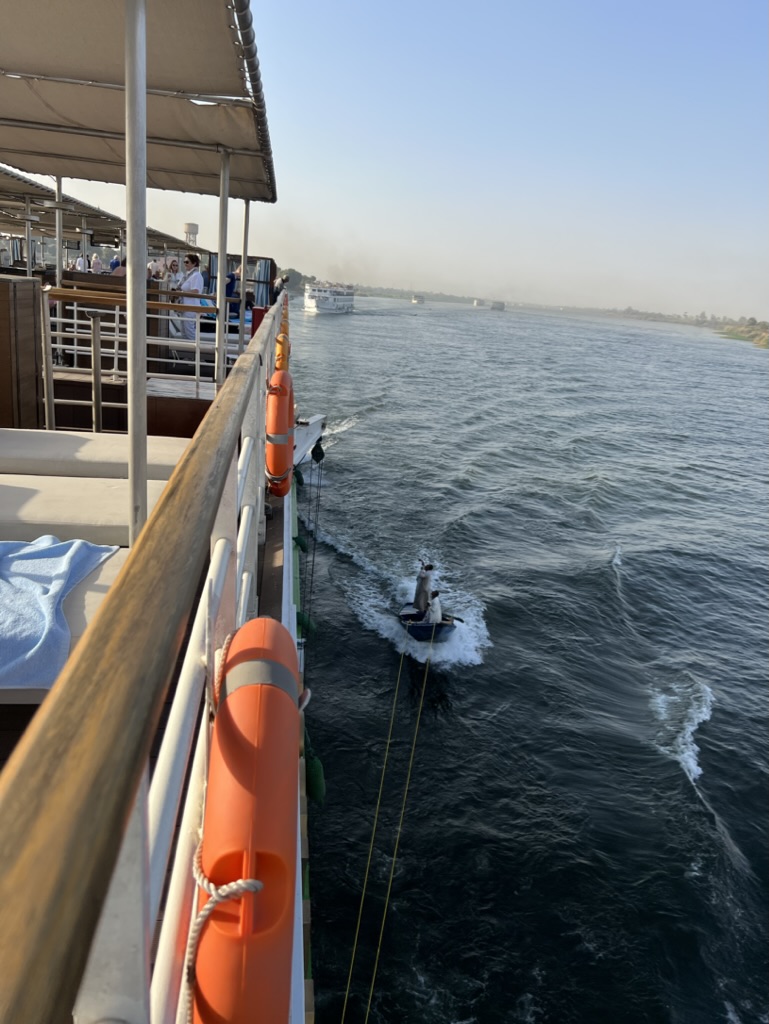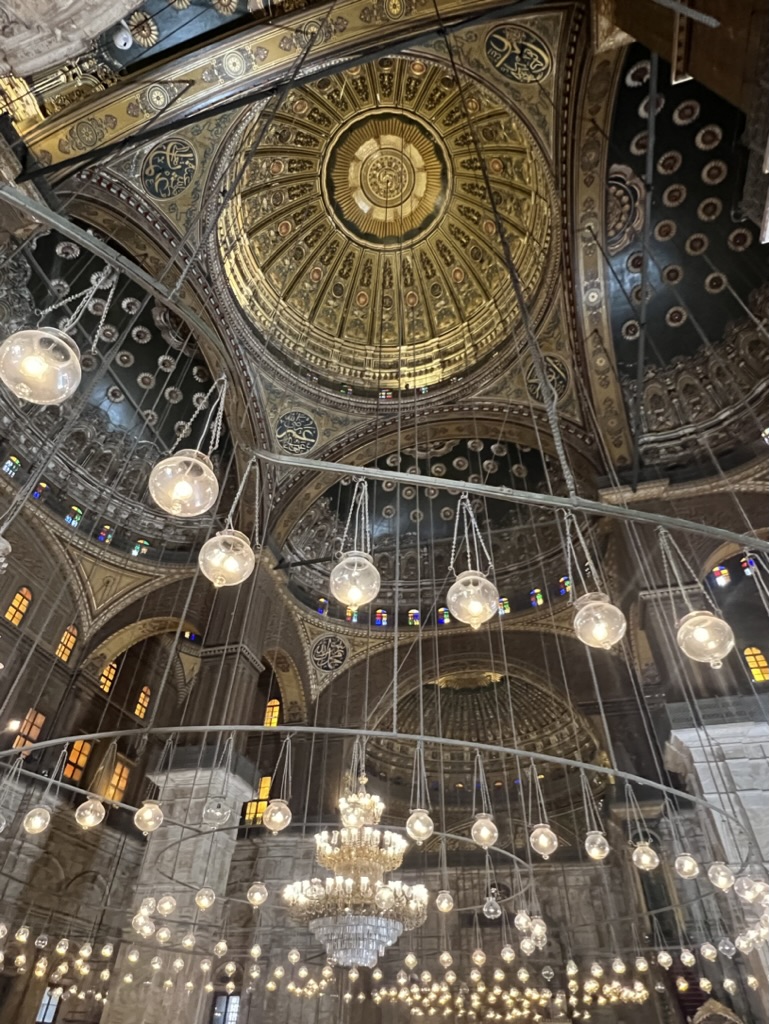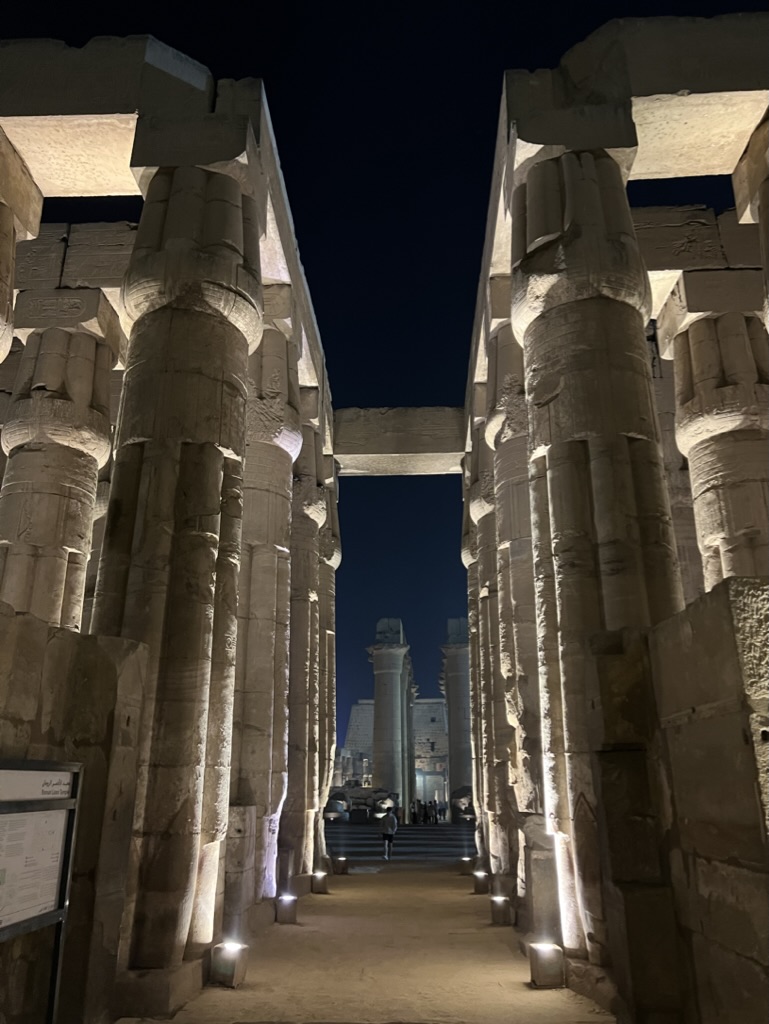I’ve been to Egypt several times in the past. Of course, I am the daughter of Egyptian immigrants.
In the past, the chaos of the crowds, the sights and sounds, the late-night activity, and the warm breeze caressing my skin only served to stir my soul. As an American outsider visiting a culture I was familiar with, I found myself in a constant state of pleasant observation. All of the stimuli woke my sense of reflection and art and existential beauty. it has been said, “You can’t live in Cairo, corrupt as it may be, and not believe in love.”
On a more recent trip, however, I saw Egypt through my husband’s eyes. His childhood experience was completely foreign to mine. This was his first trip overseas to a truly foreign (developing) country. The environmental stimuli that I had grown accustomed to melted softly in the background of my subconscious while it was spotlighted, unignorable like a clashing band to him, due to his unfamiliarity. For him, the city was deafening and obtrusive.
Where my senses found comfort, his were accosted. The horns. The smells. The air. The sand and the food. I too, saw some things through a different lens. I started to observe with a more realistic rather than idealistic perspective on this trip.
The air was polluted and dusty- making him sneeze during the day and snore at night. His head and ears never found respite from the sounds of horns mixed with the call to prayer (adhan).
I experienced a similar phenomena growing up. My parents, immigrants of this extremely conservative culture, saw things in American TV and pop culture that offended their conscience, while my brothers and I saw nothing. We were immersed in it and thought it normal… we became immune to seeing offenses or wrong-doing because it was normalized around us.
Spiritual Philosophical Detour:
Paul brought this up in the New Testament. When he preached to the Corinthians, he addressed their mixing of “normal pagan” culture with Christianity. Temple prostitution was normal for their culture… and new Christians didn’t give it a second thought, but it was wrong. It was not part of God’s design and not a healthy practice. I think normalizing cultural norms within our faith is a struggle we still have today.
I’m not advocating for a secluded overly prude Christian commune where we all hide out from the world, but I think there is something to be said about rethinking societal standards which we have come to view as normal, but maybe shouldn’t.
all the ancient temples, which held wonder and curiosity for me, made my husband slightly sad. Where I had seen only beautiful architecture, he mourned the spiritual lostness of the ancient peoples. It turned my thoughts to our current modern cities… If I truly thought about what our culture reflected spiritually, would I? … should I? be more sad? (this was so true on a trip to Amsterdam – but that’s another post).
Back to Egypt:
The markets, full of spices, scents, colors, and national geographic images, were overshadowed by the pushiness of desperate vendors targeting foreigners.
My husband was quiet for most of the trip, but during a visit to a particularly rural area in Egypt he remarked, “What opportunities exist for young men here?” He saw the humble population struggling to survive by peddling meager wares, driving broken taxis, carriages, or portering. Of course, people are working in high-rises as doctors, lawyers, and engineers, but that isn’t what you see as a tourist in Egypt.
For Americans that are so accustomed to the vastness of opportunities available, it can be eye-opening for a tourist to truly grasp the contrast of cultural norms for blue-collar work between US and a developing country. That being said, we were inspired and truly entertained by some of the more resourceful vendors- like the “pirates” that pulled up alongside the cruise boat and grabbed a “tow” to sell their wares. They rowed fast and lassoed onto a ship’s exhaust pipe. they caught a portion of the boat and then let the cruise ship pull them along as they focused on yelling up to the pool deck, “hallllooooo, lady…i have something for you!!!”
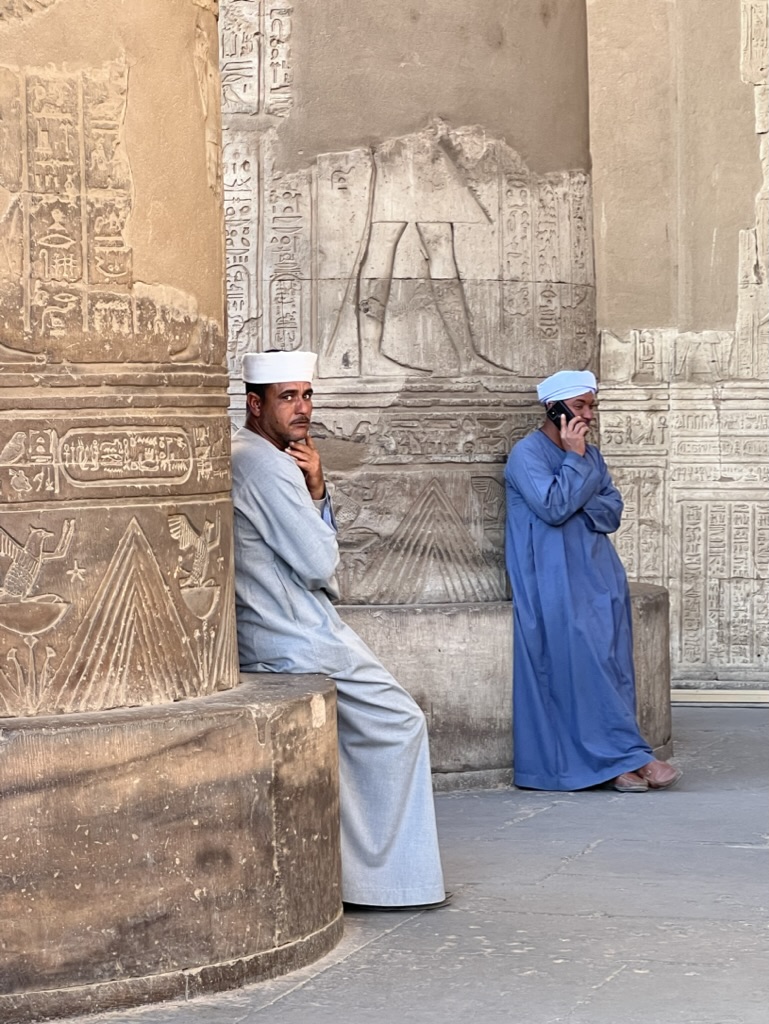
They had incredible aim shooting up textile wares (while moving). It was the equivalent of throwing a bag up 2 stories to the top deck while cruising in a car. They aimed their wares at curious people leaning over the side. They were so incredibly resourceful. When they had sold a sufficient amount of wares, they disconnected allowing the row boat to slow then rowed towards a boat moving in the opposite direction to catch a ride home.
There ARE professional opportunities for young people in Egypt and other countries overseas… but many times it involves education and occasionally starting a new life somewhere else. For poorer families that need their children to help being in income at a young age, the educational opportunities aren’t always an option. For middle-class families, the market might be flooded.
A jeweler told us he was an engineer before the Arab uprising- but now the engineering job market is slim. The police-state government moved a large number of technical jobs into the Army Corps of Engineers. Private engineers were in abundance and tourism was a larger source of opportunity for him. People there are resilient and flexible. They maneuver the tourism market and private industry as it ebbs and flows with the state of global security. Medicine is a steady industry and entrepreneurs can find a niche… if they are creative, persistent, and connected.
Most of the ambitious younger generation are leaving for Europe or North America- so how does this country or any of the other developing countries progress, when they are consistently losing their best and brightest?
I have mixed feelings about it- because immigrants made America… and consistently rise to the top- almost half of Fortune 500 companies were formed by immigrants! There is something to be said about the characteristics of immigrants and their adventurous spirit, courage, ingenuity, lack of aversion to risk, and the resilience that propels them in life. I am thankful for America… and a little sad for the countries they left behind… but I can’t fault them- America does offer promise and opportunity unrivaled by any other country AND this country benefits from hard-working, driven people.
My husband was very happy to get home and be able to breathe… he still has flashbacks about the car horns. I think he appreciated the resourcefulness he witnessed, which inspired us both. I also think his perspective helped to remind us both how fortunate we are, how much we take for granted and how each of our life lenses makes world perspectives so different. I also appreciated that even though he didn’t fully understand the culture – that he learned some words (which always make me smile and show he cares about me and the things I care about). He also could appreciate the values of hard work, humor, ingenuity and community that he witnessed. The beauty of the nile, sunsets and our cruise connected us both to God’s handiwork regardless of the location.
